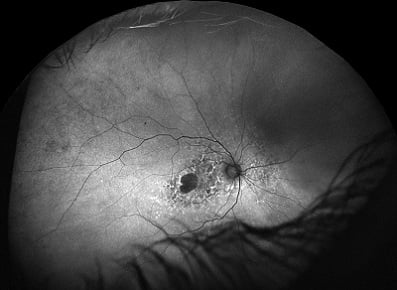Eye Health and BP Medications: What Your Patients Need to Know
A long-term eye health study done by researchers from the University of Wisconsin School of Medicine and Public Health has shown that there is a link between increased risk of age-related macular degeneration (AMD) and the use of blood pressure medications.

Source: Optos
Close to 5,000 participants, ranging in age from 43 to 86 years, were selected for the study that began in 1988 and was completed in 2013 as part of the Beaver Dam Eye Study funded by the National Eye Institute. Although an estimated 11 million Americans suffer from AMD due to several different risk factors, the results involving vasodilators and oral beta blockers were significant.
Although age, sex and other environmental factors were accounted for, researchers still found that patients using a vasodilator were at a 72 percent greater risk of developing early-stage AMD. For participants in the study that did not take vasodilators, early development of AMD was only found in 8.2 percent, whereas 19.1 percent on the medication developed the disease.
The results for beta blockers were much more concerning. In patients taking medications, such as Tenormin and Lopressor, there was a 71 percent increase in the risk of contracting neovascular AMD, which is a more serious form and poses a greater threat to vision loss. In this portion of the study, only 0.5 percent of the group not taking beta blockers developed the disease while 1.2 percent of patients taking them suffered from neovascular AMD.
While the information on eye health gathered in this study is significant, researchers caution against changing medication regimens at this time. Further studies must be completed to compare the efficacy of the drugs for heart conditions against the risk of developing either form of AMD.
As leaders in ultra-widefield retinal imaging, Optos would like to invite you to contact us to schedule a consultation to learn how you can provide early detection and treatment of AMD in your patients.